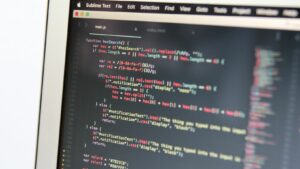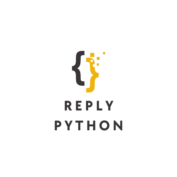 Embarking on the journey to learn to code can be both exhilarating and daunting. For many, the idea of mastering a new language, the language of computers, may seem like an insurmountable challenge at first. However, with the right approach and mindset, diving into the world of coding can be a rewarding and empowering experience.
Embarking on the journey to learn to code can be both exhilarating and daunting. For many, the idea of mastering a new language, the language of computers, may seem like an insurmountable challenge at first. However, with the right approach and mindset, diving into the world of coding can be a rewarding and empowering experience.
As individuals navigate through the complexities of syntax, algorithms, and problem-solving, they often encounter moments of frustration and triumph. The process of learning to code requires dedication, patience, and a willingness to embrace continuous learning. While the road may have its obstacles, the sense of accomplishment that comes with writing your first lines of code or building your first program can be incredibly fulfilling.
How Hard is it to Learn to Code
Learning to code comes with its set of challenges that can be both daunting and rewarding. It requires dedication, persistence, and the readiness to embrace a new way of thinking and problem-solving.
The Learning Curve for Beginners
For beginners, the learning curve of coding can be steep. Understanding fundamental concepts, such as variables, loops, and functions, is crucial but may take time to grasp fully. It’s essential to start with simple projects and gradually move to more complex tasks to build confidence and skills.
Time Commitment Required
Learning to code demands a significant time commitment. Mastery in coding doesn’t happen overnight; it’s a continuous learning process that requires consistent practice. Allocating regular time slots for coding practice is vital to internalize concepts and improve coding proficiency over time.
Key Factors That Influence Coding Difficulty
When considering the difficulty of learning to code, several key factors play a significant role in shaping an individual’s coding journey. Each person’s experience is unique, influenced by various elements that impact their learning process and overall success. Here are two critical factors that can influence the level of difficulty in learning to code:
Prior Experience in Related Fields
Having prior experience in related fields can greatly influence how challenging learning to code may be. Individuals with a background in mathematics, logic, or problem-solving may find certain aspects of coding more intuitive and easier to grasp. Familiarity with concepts such as algorithms or data structures can provide a solid foundation for learning to code, potentially reducing the difficulty level for those with relevant experience.
Personal Learning Style and Preferences
Another crucial factor in determining the difficulty of learning to code is an individual’s personal learning style and preferences. Some people thrive in structured environments with clear  guidelines and step-by-step instructions, making traditional coding courses a suitable choice. On the other hand, those who prefer hands-on, experiential learning may find interactive coding platforms or project-based learning more effective. Understanding one’s preferred learning style can facilitate a smoother and more efficient coding learning experience.
guidelines and step-by-step instructions, making traditional coding courses a suitable choice. On the other hand, those who prefer hands-on, experiential learning may find interactive coding platforms or project-based learning more effective. Understanding one’s preferred learning style can facilitate a smoother and more efficient coding learning experience.
Choosing the Right Programming Language
When embarking on the journey of learning to code, one crucial aspect to consider is choosing the right programming language. The language complexity and user-friendliness play a significant role in determining the ease of learning for beginners. Additionally, selecting a language well-suited for novice programmers can greatly impact the learning experience.
Language Complexity and User-Friendliness
In evaluating programming languages for beginners, it’s essential to consider their complexity and user-friendliness. Some languages, such as Python and Ruby, are known for their readability and simplicity, making them ideal choices for those starting to code. On the other hand, languages like C++ and Java may have steeper learning curves due to their intricate syntax and rules. By opting for a more straightforward language initially, beginners can grasp fundamental concepts more easily, boosting their confidence and motivation to continue learning.
Recommended Languages for Beginners
 For individuals venturing into coding for the first time, certain languages are often recommended for their beginner-friendly features. Python, with its clear and concise syntax, is widely favored for novices as it emphasizes readability and ease of use. Similarly, JavaScript is another popular choice, particularly for those interested in web development, given its versatility and prevalence in building interactive websites. Furthermore, Scratch, a visual programming language, is tailored for children and beginners, offering a playful and intuitive way to understand programming concepts. Choosing one of these recommended languages can pave the way for a smoother learning journey and a solid foundation in coding principles.
For individuals venturing into coding for the first time, certain languages are often recommended for their beginner-friendly features. Python, with its clear and concise syntax, is widely favored for novices as it emphasizes readability and ease of use. Similarly, JavaScript is another popular choice, particularly for those interested in web development, given its versatility and prevalence in building interactive websites. Furthermore, Scratch, a visual programming language, is tailored for children and beginners, offering a playful and intuitive way to understand programming concepts. Choosing one of these recommended languages can pave the way for a smoother learning journey and a solid foundation in coding principles.

